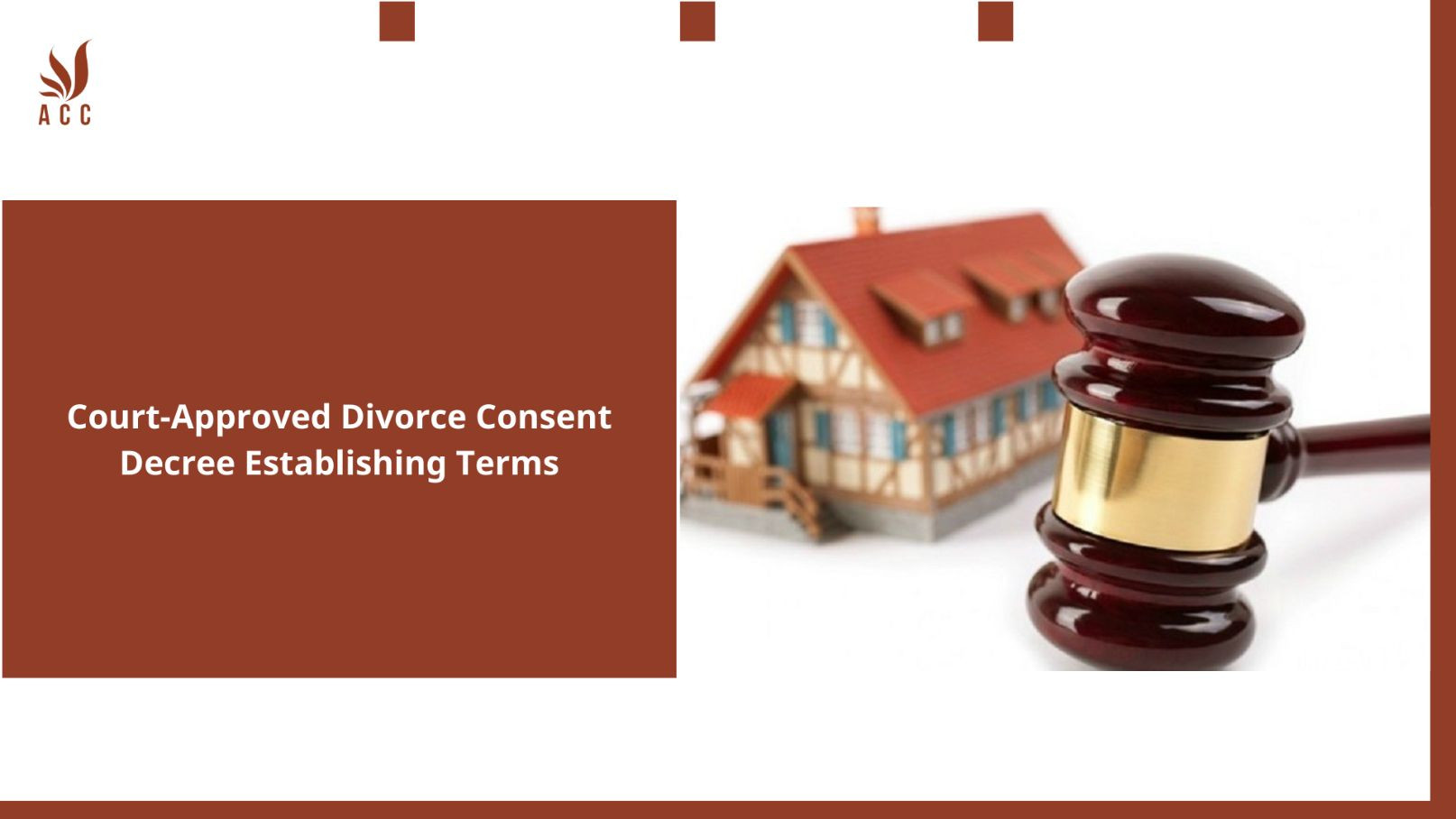
1. Court-Approved Divorce Consent Decree Establishing Terms
In the legal realm, the term "consent decree" represents a pivotal concept, signifying a formal agreement that effectively resolves disputes between parties without attributing blame. This agreement plays a crucial role in various legal matters, encompassing both criminal and civil cases. This article delves into the essence of consent decrees, shedding light on their significance and applications.
2. What is a Consent Decree?
A consent decree, a formal document acknowledged on the record, serves as the linchpin that brings an end to disputes, all while allowing the involved parties to avoid admitting guilt or liability. To illustrate, consider a scenario where an employee decides to sue their employer for discrimination. In such a case, a consent decree may be meticulously crafted, concluding the matter amicably, all without the employer having to accept culpability.
Consent decrees materialize in one of the following three scenarios:
-
Pre-Judicial Settlement: Parties involved in a legal dispute opt to resolve their differences before the case ever reaches the courtroom. This pragmatic approach avoids the need for a judge's intervention.
-
Post-Judicial Resolution: In cases where a lawsuit is filed and the parties proceed to court, a settlement is eventually reached after the judge makes preliminary rulings on certain aspects of the case.
-
Proactive Settlement: Some cases see the parties reaching an agreement before officially filing a lawsuit. Subsequently, they initiate the lawsuit proceedings, with the primary purpose of having the judge formalize the settlement as a binding court order.
In civil cases, judges often expedite the review and approval of consent decrees right on the spot. Conversely, in criminal cases, judges might take more time to delve into the intricacies before affixing their signature to the decree.
Should one party fail to honor their obligations as stipulated in the decree, the other party retains the right to bring them to court on charges of contempt. Furthermore, if a consent decree emerges as a result of fraud, factual inaccuracies, or procedural errors, the court holds the prerogative to nullify it, rejecting it as a legitimate settlement agreement.
3. The Significance of Divorce Consent Decrees
A divorce consent decree holds immense relevance in the realm of matrimonial cases. This pivotal document marks the culmination of a divorce proceeding, encapsulating agreements on a plethora of unresolved issues, ranging from alimony and child support to the equitable distribution of property, including the marital home. It also delineates the financial responsibilities of each party.
Additionally, a divorce consent decree establishes a comprehensive set of rules for the parties involved, particularly concerning their children. This encompasses visitation schedules, as well as each parent's financial responsibilities for the child's education and welfare.
In conclusion, consent decrees are indispensable instruments for conflict resolution in the legal landscape. Their utility spans across a myriad of cases, from employment disputes to matrimonial matters, making them a cornerstone of legal proceedings, facilitating equitable settlements without apportioning blame.
3. Why should professionals use ACC Law Firm's divorce Service?
-
Legal Expertise: ACC Law Firm specializes in family and divorce law, ensuring that professionals receive expert legal guidance and support throughout the divorce process.
-
Customized Solutions: Each divorce case is unique, with its own set of circumstances and challenges. ACC Law Firm tailors its services to meet the specific needs and goals of professionals, ensuring the best possible outcome.
-
Legal Compliance: Divorce involves numerous legal requirements and paperwork. ACC Law Firm ensures that all documentation is completed accurately and submitted on time, preventing potential delays or legal issues.
-
Objective Advice: Emotions often run high during divorce proceedings. ACC Law Firm's legal professionals provide objective advice and a calm, rational perspective, helping professionals make sound decisions in the midst of emotional turmoil.
-
Conflict Resolution: Divorce can be contentious, but ACC Law Firm is experienced in conflict resolution. They work to minimize disputes through negotiation, mediation, and alternative dispute resolution methods, reducing the need for costly litigation.
-
Child Custody and Support: For divorcing professionals with children, ACC Law Firm assists in establishing fair and workable child custody and support arrangements, always prioritizing the best interests of the children.
-
Asset Division: ACC Law Firm helps professionals navigate the complex process of dividing marital assets and debts, ensuring an equitable distribution according to the applicable laws.
Q&A
Question 1: What is a divorce decree, and why might someone need to request one?
Answer 1: A divorce decree is a legal document issued by the court that finalizes a divorce and outlines the terms of the divorce, including matters like property division, alimony, child custody, and support. Someone might need to request a divorce decree for legal or administrative purposes, such as enforcing the terms of the divorce or updating personal records.
Question 2: Where can someone typically request a divorce decree?
Answer 2: To request a divorce decree, one usually needs to contact the family court or the court that handled their divorce case. The court clerk's office typically maintains these records and can assist with requests.
Question 3: What information is usually required to request a divorce decree?
Answer 3: When requesting a divorce decree, one typically needs to provide information such as the names of the individuals involved, the case or docket number of the divorce, the date of the divorce, and the location of the court. Some jurisdictions may also require identification or proof of eligibility.
Question 4: Is there a fee associated with requesting a divorce decree, and how long does it typically take to receive it?
Answer 4: There is often a fee associated with requesting a divorce decree, and the processing time can vary by jurisdiction. It may take several weeks to a few months to receive the divorce decree, depending on the specific court and method of request.
Nội dung bài viết:






Bình luận